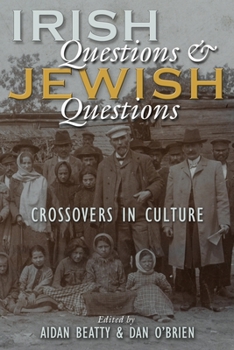Irish Questions and Jewish Questions: Crossovers in Culture
(Part of the Irish Studies, Syracuse University Press Series)
Select Format
Select Condition 
Book Overview
The Irish and the Jews are two of the classic outliers of modern Europe. Both struggled with
their lack of formal political sovereignty in the nineteenth-century. Simultaneously
European and not European, both endured a bifurcated status, perceived as racially inferior and
yet also seen as a natural part of the European landscape. Both sought to deal with their
subaltern status through nationalism; both had a tangled, ambiguous, and sometimes violent
relationship with Britain and the British Empire; and both sought to revive ancient languages as
part of their drive to create a new identity. The career of Irish politician Robert Briscoe and the
travails of Leopold Bloom are just two examples of the delicate balancing of Irish and Jewish
identities in the first half of the twentieth century.
centuries of the Jewish experience in Ireland, as well as events in Israel-Palestine and North
America. The authors examine the leading figures of both national movements to reveal how
each had an active interest in the successes, and failures, of the other. Bringing together
leading and emerging scholars from the fields of Irish studies and Jewish studies, this volume
captures the most recent scholarship on their comparative history with nuance
and remarkable insight.
Related Subjects
History




